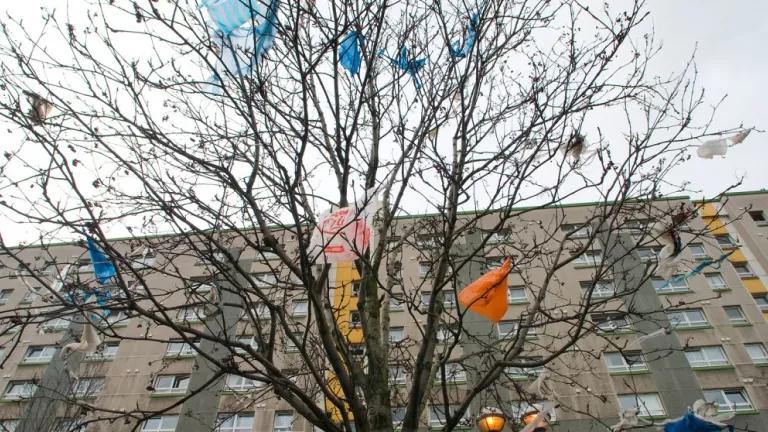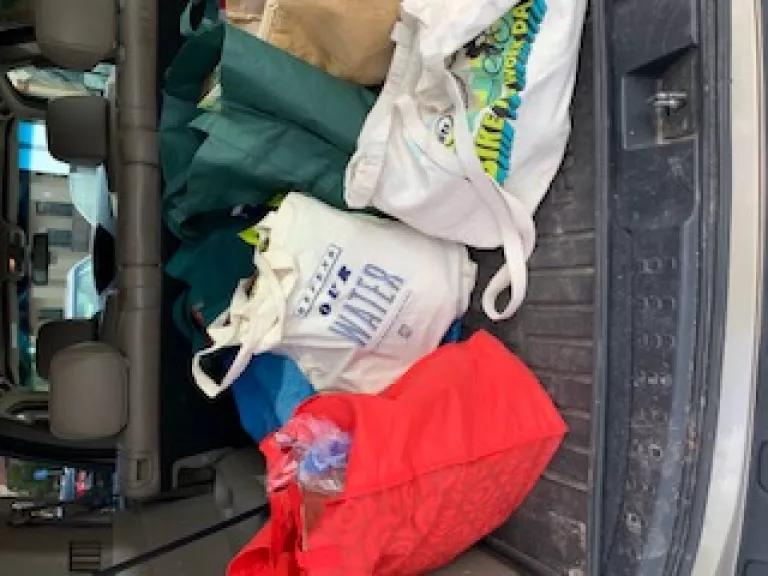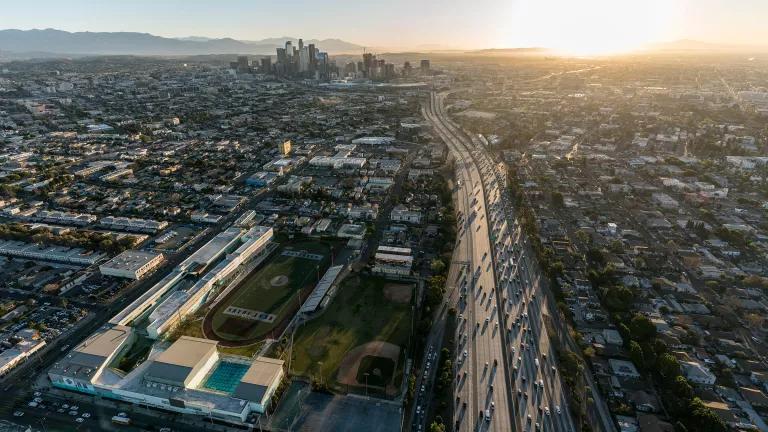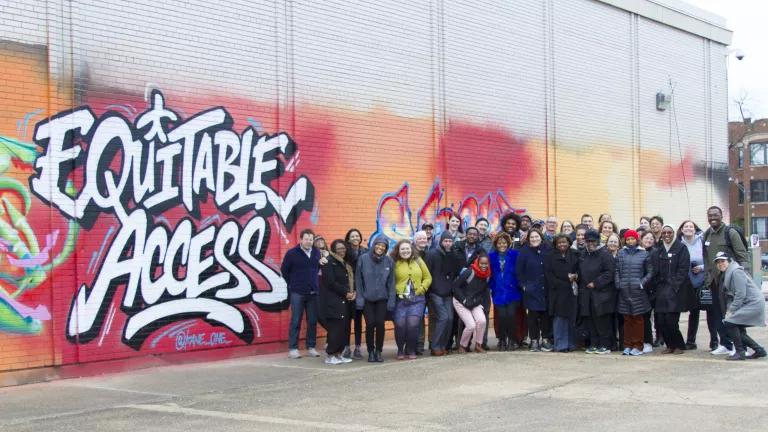Paper or Plastic? Neither! Grocery Shopping During COVID-19
The plastics industry is using this crisis to advance its own interests and attempt to undo the progress we’ve made in getting rid of single-use plastic grocery bags.

Plastic bags caught in trees
During this pandemic, grocery store workers have proven that they are, indeed, essential workers. They are doing the hard work of stocking shelves, checking out customers, cleaning the stores, and bagging groceries, so that we can still buy food in these challenging times. Grocery workers deserve our gratitude, and they deserve every protection against becoming infected by the coronavirus.
What I hate to see, though, is the plastics industry using this crisis to advance its own interests and attempt to undo the progress we’ve made in getting rid of single-use plastic grocery bags.
California Gov. Gavin Newsom suspended California’s first-in-the-nation ban on flimsy plastic grocery bags, though he didn’t pre-empt localities with their own bans already in place. His administration also issued guidance for the safe use of reusable bags, allowing for their use as long as customers bag their own groceries into them. The Centers for Disease Control has its own guidance for grocery and food retail workers that does not address reusable bags. However, many local governments and grocery store chains have prohibited reusable bags from entering stores, likely based on misinformation spread by the plastics industry, leaving shoppers confused with little choice but to accept single-use plastic bags. The Governor’s suspension order is officially expired now, adding to the confusion.
The plastics industry has tried for years to sow doubt about reusable bags with questionable studies painting them as germy threats. It’s no surprise the industry is using this global public health emergency to try to turn the tide against the effort to end the use of single-use plastic bags.
Groups like the Competitive Enterprise Institute, Manhattan Institute and American Energy Alliance—all with ties to the plastics and petroleum industries—have been spreading stories warning that reusable bags could help spread Covid-19. But those stories are based on studies that actually found the coronavirus persists longer on plastic surfaces than other materials—and that didn’t address reusable grocery bags, which can be made from a variety of materials, at all.
As the Los Angeles Times wrote in a recent editorial, “reusable bags pose no more risk than anything that comes into contact with groceries and isn’t properly washed, including the hands of shoppers.” And recently, a group of scientists, physicians, and other health experts issued a statement about the safety of reusable bags and containers, noting that reusables can be used safely by employing basic cleaning procedures and minimizing contact.
We shouldn’t let the current situation erase the multiple reasons why California put its ban in place and why the Plastics Free California Initiative is currently gathering signatures to qualify for the California statewide ballot. Plastic pollution—which lasts virtually forever—can be found around the globe, down to the deepest depths of the ocean, fouling the environment and contaminating the food chain.
Single-use grocery bags have become a major problem. About 100 billion are used in this country every year. They are hard to recycle and too many end up littering our communities, waterways and oceans. California and seven other states have banned single-use plastic bags and many other jurisdictions throughout the U.S. have banned bags and other single-use plastic items. We can’t allow this public health emergency to turn back that progress.
Still, I want to do everything I can to respect grocery store workers—and be an environmentally conscious shopper. Luckily, that isn’t hard!
Here’s one strategy: Take your reusable bags with you but leave them in the car. When the cashier asks you, “Paper or plastic?” your response should be, “Neither!” Ask the bagger to put the groceries back in your cart after they’ve been rung up. This approach has the added benefit of saving everyone’s time.

We can still use reusable bags
Make sure you keep your receipt when you leave the store, and then when you get back to your car, just put the groceries into your reusable bags for easy transport when you get home. It’s good practice to wash cloth reusable bags from time to time, and reusable plastic bags can be wiped down as well.

Groceries loaded and ready to go
Grocery workers shouldn’t have to take unnecessary risks—however unlikely it is that reusable bags are actually a vector to be concerned about. But we also can’t allow the plastics and petroleum industries, which have never demonstrated any concern about public health, to exploit this emergency to keep peddling unnecessary single-use plastics.
Remember, when grocery clerks ask, “paper or plastic?” the right answer is “Neither!”



